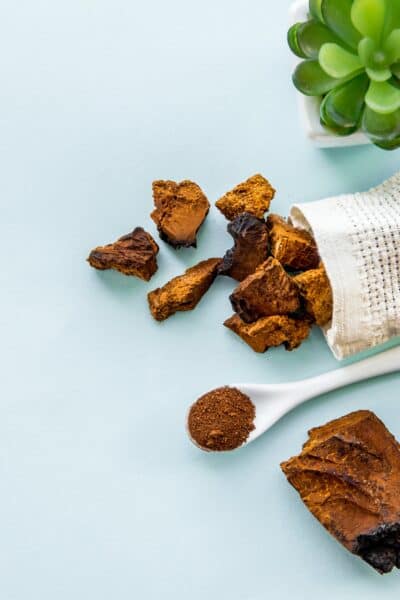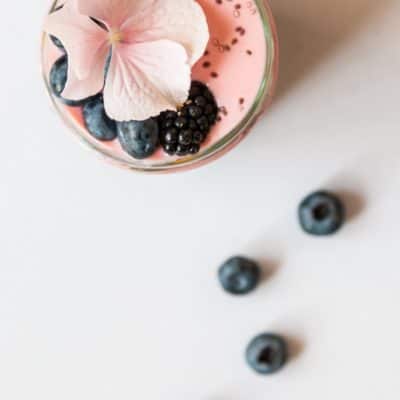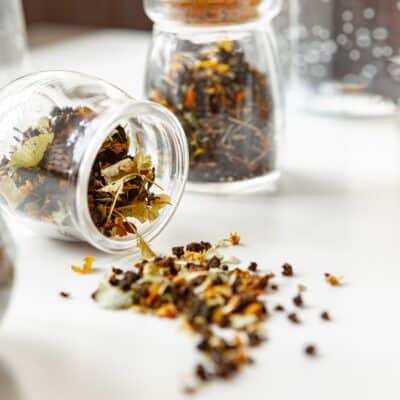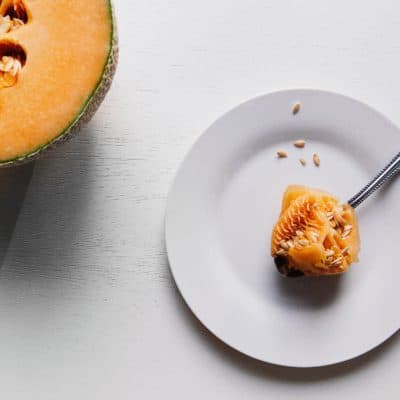Looking for ways to support your immune system, look better, live longer, feel happier, and more?
Here’s a free, science-based, and natural way to do it: get good sleep!
Is sleep really that important?
You will be hard-pressed to find a doctor or health practitioner who tells you sleep is unimportant for your health and wellbeing. We all know to “get in 8 hours,” but in our go-go-go world of achievements, chasing success, packed social calendars, and stress, sleep can often be a sacrifice or just fall to the wayside. The National Institute of Health purports that sleep is not just a time of rest – it’s an important time for the body to perform certain functions as well as repair and renew. Here’s what the science says about sleep in a few main areas of our lives:
SLEEP SUPPORTS THE IMMUNE SYSTEM.
Sleep is beyond a bodily function and necessity – sleep is a key factor in your immune system. White blood cells in your body help fight infections, and sleep helps activate and circulate these white blood cells. Studies show how chronic sleep deprivation suppresses the immune system and leads to inflammation, which is linked to disease. In fact, sleep deprivation has the same effect on the immune system as does physical stress: decreased immune function, according to this study. The study shows how a specific type of white blood cell called granulocytes lose their efficacy after even one night of sleep deprivation.
SLEEP SUPPORTS HEALTHY DEVELOPMENT.
“Never wake a sleeping baby” – or a sleeping pregnant woman! This study shows how important sleep is for a baby even while in the womb, as poor sleep in pregnancy can disrupt the immune system and result in birth-related complications. Beyond the womb, only about half of U.S. children get adequate sleep during the week. Research shows that less sleep can lead to greater likelihood of depression, anxiety, impulsive behavior, and poor cognitive performance in children. So what happens when kids get good sleep? Proper REM sleep improves cognition, speech and language development, memory, and more. For teens, better sleep helped them navigate challenging social situations more positively. Additionally, sleep helps solidify and store learning from the day, transforming learned material into stored knowledge in the brain.
SLEEP HELPS YOU LIVE LONGER.
Besides the wide range of research that supports the link between sleep and general health (which assumes a long, healthy life), there is other research that suggests sleep helps you live longer. The health implications of poor sleep include increased risk of stroke, heart disease, diabetes, and more. In fact, this study found that fragmented sleep (constantly waking up at night) accelerated cancer growth. However, be rest assured – sleep “debt” can be repaid and these risks correspondingly decrease, helping you live a longer life.
SLEEP AFFECTS HOW YOU LOOK.
It turns out that beauty sleep is actually a thing! Studies show that poor sleep affects skin “integrity,” or how well your skin repairs itself after encountering a stressor (such as a scratch, sunlight, intense wind, etc). Sleep deprived women have been shown to have skin that ages faster and is less able to repair itself. It also turns out sleep affects weight loss and obesity risk. From these studies and more, one factor for glowing skin and healthy weight management is to get better sleep!
SLEEP IMPROVES YOUR MOOD & WELLBEING.
Did you know that sleep makes us happier? Especially if it is regular good sleep, according to this 2017 study with college students. In fact, better sleep helps us feel more grateful, more in control of our lives, less anxiety and depression, and more optimistic. This works for children and adults! This 2019 study actually found school children ages 10-12 who nap to feel happier, excel academically, and have less behavioral problems.
How To Get A Good Night’s Sleep
So now that we know how important sleep is in affecting the quality of our lives, what is good “sleep hygiene?” There are many theories as to what makes us sleep better, and I encourage you to experiment on your own to see what works best for you. Here are some tips to help you get started:
DAYTIME IMPACTS NIGHTTIME.
- What you eat affects your sleep. This study shows that women who had a diet high in refined carbohydrates and sugars were at greater risk for developing insomnia. I would recommend eating as fresh and raw (as far as fruits and vegetables go) as your body can handle before 4pm, then having a cooked or steam-cooked dinner to ease digestion before bed. It’s easier to make these choices while running on a good night’s sleep, such as this study found. Foods to help sleep include: organic cherries, mango, raw organic honey, banana, cucumber juice, to name a few. (I personally love using this cherry drink before bed – it does amazing things for sleep! Plus it is safe for your kids too.) Worried about the sugar before bed? Have no fruit fear – sugar from these natural sources won’t spike your alertness so that your sleep is disrupted. I would recommend experimenting to see what works best for you.
- When you eat affects your sleep. Junk food cravings at night are linked to sleep deprivation and higher obesity risk and other health problems. Eating close to bedtime can make it harder to go to sleep, as the digestive system is working hard. Also, if you are trying to hydrate (awesome!) but drink most of your water before bedtime, nighttime visits to the bathroom will interrupt your sleep.
- Activity during the day affects your sleep. Physical exercise impacts sleep quality, with those following the national guidelines of 150 minutes of moderate vigorous activity per week seeing a 65% improvement in sleep quality. The reverse is also true – better sleep improves athletic performance! If it’s possible for you to exercise outdoors, the effects can be greater for your mental wellbeing – plus, nature and green spaces are also linked to better sleep.
- Supplements can help. Magnesium, which helps regulate melatonin levels, can be helpful. You can also take melatonin (don’t worry, it won’t stop your body from naturally producing melatonin; in fact, it will support your body’s production). My favorite natural source of melatonin is from the tart organic cherry juice (Apothecherry) by Purium – it is amazing for sleep! Lemon balm is wonderful for calming the nervous system before sleep and also has many other added benefits. California poppy is also a well-known herb for soothing nerves and helping sleep. When taking supplements, be sure they are high quality with a clean manufacturing process. I have written extensively about supplements here. I would recommend starting with a low dosage and working up to what is recommended on the bottle, and be sure to work with a practitioner you trust.
NIGHTTIME ROUTINES CAN SIGNAL YOUR BODY TO SLEEP BETTER.
- Turn off screens an hour before bed. Certain cells in your eyes detect light and communicate to your internal clock and circadian rhythms. If your eyes detect artificial light, it confuses your circadian rhythm and can disrupt your sleep. It turns out kids are more affected by screen time before bed than adults, and early screen exposure has been linked to sleep disruption and emotional behavioral disorder in kids. You could make it a family ritual to shut off screens and spend time together before bed if you wish!
- Take an epsom salt bath. There are many benefits to an epsom salt bath, including better sleep. Epsom salt is made up of magnesium, which helps regulate the sleep-wake cycle of the body. Even better, you could add lavender essential oil to the epsom salt before dumping it into the bath. Lavender has been shown to relax the body and even improve insomnia in college students.
- Sip some sleep-supporting teas. Chamomile is a well-known tea for calming before sleep, as well as lemon balm. The Traditional Medicinals tea brand has some good blends with relaxing herbs that could be found in your local grocery store: Nighty Night or Nighty Night Extra, Cup of Calm, and Stress Ease.
- Meditate. More and more science is showing how meditation improves sleep quality and can even be an effective treatment for insomnia. Even simple breathing exercises before bed can put your body in a state ready for rest. Here’s a simple 5-minute technique. You can also simply lay down and take 10 deep breaths in and out of your nose. Breathe in for 2 slow counts, hold for 2 slow counts, and exhale for 4 slow counts. There are many great meditation apps available that you could also try.
- Go to bed at a consistent time each night. Maintaining a regular sleep schedule helps balance your circadian rhythm, and can support alertness during the day as a result. This can help you and your family – children and teens benefit a regular nightly routine, and college students with good sleep habits get better grades.
SET UP A GOOD SLEEP ENVIRONMENT.
- Do what you can to reduce electromagnetic fields (EMF). Every electrical device emits an electromagnetic field, even those that are battery operated (though they have a lower EMF). EMFs have been linked to lower sleep quality, as well as a variety of health issues. Simple things like turning off your cell phone at night (or putting it on airplane mode across the room) greatly helps to reduce EMF in your bedroom. Here is a great guide on how to reduce EMFs in your sleeping space. You can read more about EMF and sleep here.
- Reduce clutter. When you see clutter right before you go to bed and the first thing in the morning, it can cause stress and lead to poor sleep. A clean, peaceful sleeping area creates a sense of calm both before sleep and in the morning. Treat your sleep space as a sanctuary – it’s an important place for your body to do some of its most amazing work!
- Use low lighting. Research shows that dim lighting has less of an impact on your melatonin levels than room lighting (a room full of light). Melatonin is an important hormone that helps regulate the sleep-wake cycle. This guide suggests opting for simple, older incandescent style light bulbs for low lighting and lower EMF.
- Use relaxing essential oils*. Lavender is well-known for promoting relaxation and sleep. You can drop some in a bath as suggested above, massage with a carrier oil on the back of the neck, or diffuse near your bed before bedtime. You can also use a lovely sleep mist on your pillow if you so choose. Ylang ylang, sandalwood, marjoram and chamomile are also wonderful for promoting sleep and aiding in sleeplessness.
- Ground your body before or during your sleep. Your cells are specialized to conduct electric current. The earth is also an electric conductor with its own charge, and connecting with the earth balances your own charge. This has been shown to improve health outcomes, such as improved sleep, reduced pain, decreased stress, decreased inflammation, and helps regulate the nervous and endocrine systems. The best way to ground yourself is to connect your bare skin with the ground of the earth – and it is especially helpful before sleep. You can also use grounding products such as a grounding mat or bed pad; I noticed it made an amazing difference in my sleep! Be sure to read the instructions on its use carefully and follow the recommendations. If you are interested in reading more about the science and research behind grounding, I recommend reading Earthing: The Most Important Health Discovery Ever by Clinton Ober, Dr. Stephen Sinatra, M.D., and Martin Zucker.
May you have golden slumbers each and every night!
Many blessings,
Amber
P.S. If you want to learn more about how to strengthen your immune system, sign up to be the first to know about my upcoming online course and get a free ebook of immune-boosting smooothies!
*If you wish to purchase essential oils, you can use my coupon code amberbodilyhealth at the links in this post for Primavera oils to receive a discount.









